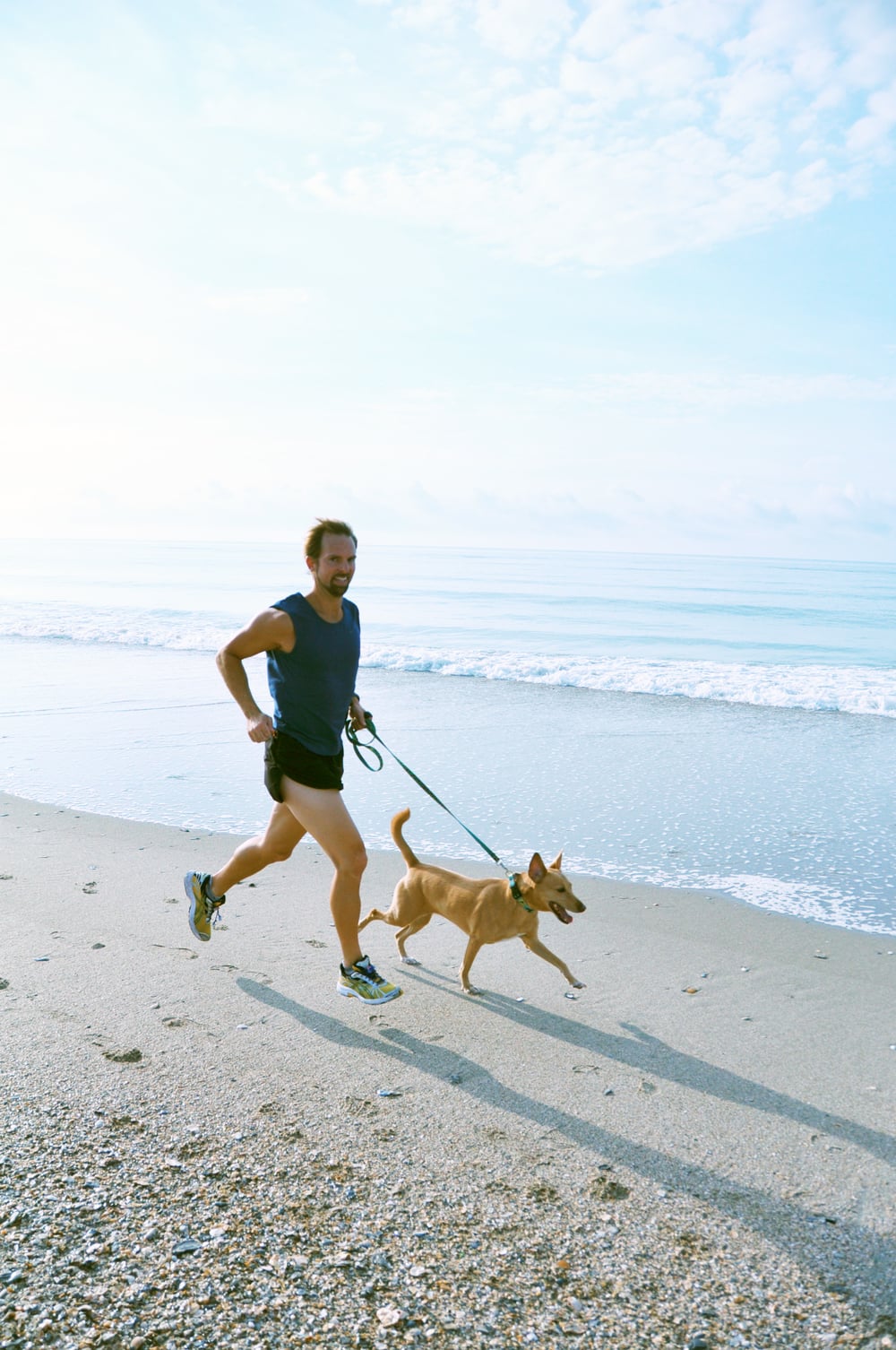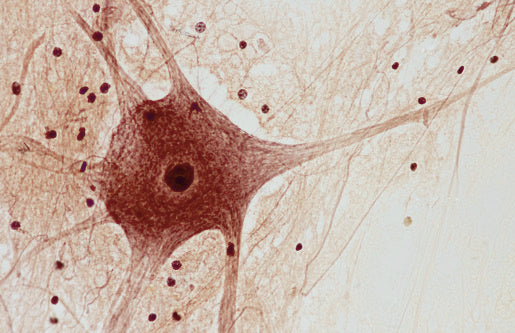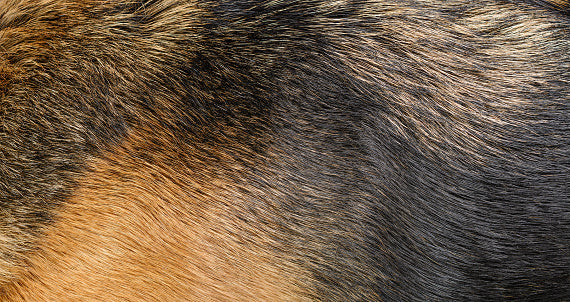Wellness
Strengthening the human-animal bond, with veterinarian, Dr. Ernie Ward
Improving the skincare of our pets helps us grow closer and elevate the human-animal bond
For Dr. Ernie Ward, the path to becoming a veterinarian began in the most unexpected and heartbreaking way. Growing up in a rural community on a farm, animals were a constant part of life, but it was a personal tragedy that set him on his lifelong mission to improve the lives of pets everywhere.
By elementary school, he already knew he wanted to become a veterinarian. “From a young age, I felt a strong affinity toward veterinary medicine. It wasn’t a surprise to anyone who knew me," recalls Ward.
At six, he found two stray dogs under an abandoned house. Taco, especially, would go on to shape Dr. Ward's life in ways he couldn’t have predicted.
“We lived on acreage near neighboring farms. As Taco got older, one of the neighbors claimed he was killing their chickens, and things escalated. One night, I heard the unmistakable sound of a 12-gauge buckshot. I don’t know how, but I knew it was Taco,” Dr. Ward says, the memory still vivid.
“I ran outside, and Taco had made it back to our house, but his side was shot. I vividly remember cradling him, helpless, while my parents yelled.”
"He passed away, and it was profoundly impactful. As a child, I felt helpless, like, 'Why did this happen? Why couldn’t I fix it?' That moment crystallized my decision to become a vet. There was no going back,” he reflects.
The experience instilled in him a drive not just to care for animals, but to deeply understand their needs and well-being. "Unfortunately, my decision to become a vet has a traumatic origin," he admits. “While I already loved animals, that experience with Taco was a defining moment. As a young vet, I felt a heavy pressure to save every situation, but over time, I learned that you can’t save every animal.”
"I share this because it was not only the inflection point for my career but also a growth opportunity. It taught me to have a healthier outlook on medicine. I often impress upon my colleagues the importance of understanding the 'why' behind what they do. Many people say they love animals, but it’s important to dig deeper. In many cases, there’s a traumatic origin. If you accept and understand that, you can work on turning it into something healing and positive."
"I feel lucky to have figured that out as a young adult, in my early 30s. Taking the time to uncover your true 'why' helps prevent burnout, frustration, and compassion fatigue—issues that are common in the healing professions."
His story is a reflection of what many veterinarians experience—a profound, personal connection to the animals they care for, driven by moments of loss and learning. It’s that same compassion that he now channels into his work with Moko, a company that integrates natural ingredients like Mānuka honey into pet care products.
A New Movement in Pet Skincare
In a world where people are increasingly treating their pets as family members, Dr. Ward believes there's an essential, yet often overlooked, aspect of pet maintenance: skincare. “The way we interact, communicate, and associate with our pets is through their skin. We hold them, pet them, brush them,” he explains. However, people rarely think about the health of their pet’s skin and coat until there’s a problem—itchy skin, oily fur, or that unpleasant 'dog smell.”'
Moko, however, is looking to address these needs. Together with founder Sarah Scarlet, Dr. Ward saw an opportunity to address a gap in pet maintenance—skin care. "Skincare is essential for a healthy, loving relationship with your dog,” says Ward. “If the dog's coat is coarse or oily, flaky, dirty, or smelly, those are impediments to how we share affection.”
Dr. Ward’s philosophy isn’t just about keeping pets clean—it's about enhancing the human-animal bond. “If we can solve issues like flaky skin or rough fur, it helps create a closer, more affectionate relationship between pets and their owners. Skincare is just another way to elevate that bond."
Shifting Perspectives on Pet Hygiene
As both a veterinarian and an advocate for natural pet care, Dr. Ward challenges many of the outdated beliefs surrounding pet hygiene. "We’ve really made excuses, like saying you shouldn't bathe your dog too frequently, and there’s very little science to support that," he says. “When you look at these recommendations of bathing your dog every week or every month, those originated from very harsh compounds that were included in shampoos, especially pesticides.”
Dr. Ward pushes back against this, noting that modern, gentle products like Moko's are formulated to be safe for more frequent use. "We bathe our babies daily. But you're telling me my dog has some magical thing in its skin or fur that prevents it from being bathed daily? No. These old recommendations date back to the 1950s when they were putting all kinds of flea and tick chemicals in shampoos."
For Dr. Ward, it’s not just about clean dogs—it’s about the quality of life for both the pet and the owner. “If I can support [the skin barrier] and not use harsh chemicals that destroy healthy fats, then I have a product that can enhance the bond. We can bathe our dogs every couple of days, or certainly every week. They smell better. Their skin is softer and more supple. Their coat is more lustrous. And I enjoy being around them.”
The Three Key Areas Moko Works on Dogs
Dr. Ward emphasizes three critical areas that Moko’s products are designed to target. The first is the skin and coat. “If one is healthy, the other is healthy. If we can improve the health of the skin, the fur naturally improves as well,” he says.
Next, is the ears, though an extension of the skin, require special attention. For Dr. Ward, the health of a dog’s ears is often overlooked but is key to overall wellness. "Ear care is really important—not just from an infectious standpoint but to make the dog feel good and smell good," he explains.
And then there are the paws. "Many people don’t think of taking good care of their dog’s paws. Some vets say, 'They need to be tough and rough because they don't wear shoes.' That's true. But we want to make sure the nails are clean and that there’s no debris stuck in there," he advises.
“When we're bringing [our dogs] into our homes, sharing our beds and dinner tables, we need them to be hygienic for our own safety and health. We need good products that people can safely use on the ear skin, fur, and paws. If we can address these touchpoints, it helps elevate the human-animal bond."
Natural Solutions for Modern Pet Owners
Dr. Ward isn’t stringent on only using natural solutions, but he does advocate for them where possible. “Certainly, there are times when we rely on synthetic compounds, especially medications. But when it comes to diet, nutrition, and hygiene, I always look for natural choices," he explains. "If I have two choices with similar benefits, I’ll choose the more natural option with fewer ingredients and less environmental impact.”
The goal is to bring pets and their owners closer together by addressing health in a holistic way, from the skin and coat to the ears and paws. “What we’re really seeking are ways to maintain healthy skin and fur. If I can help pets feel better and look better, while also giving owners products they can trust, then we’ve done something powerful."
The philosophy driving Moko’s natural products is simple: by addressing these often neglected areas of pet care, pet owners can create an even stronger bond with their furry companions. We’re entering an era where we’re understanding more about our pets’ needs. The human-animal bond is evolving, and we’re only just scratching the surface of what’s possible.
Meet the Pets: Jenny and Girlna
Right now, Dr. Ward’s family is filled with love from two very special companions: Jenny, a spirited Border Terrier, and Girlna, a cat who joined the family during the pandemic.
Jenny the Border Terrier
Jenny, a 7 ½-year-old Border Terrier, came to the Ward family through a rescue network. Like their previous dog, Harry, Jenny was born with a physical deformity. “Both of the last two dogs were Border Terrier rescues with physical problems,” Dr. Ward explains. “Jenny has a deformity in her pelvis and hindquarters, which affects her mobility and how she goes to the bathroom. But she doesn’t let it phase her—she’s just a happy dog.”
Jenny came to the Wards through a special connection. One of Dr. Ward’s veterinary associates had a mother involved in U.S. Border Terrier rescue. In many cases, puppies born with deformities would be put down, but this network finds homes for dogs like Jenny and Harry. “My daughters were young at the time, so they named them after characters from Harry Potter—Harry and Jenny,” he laughs.
For Dr. Ward, Jenny’s condition has been a unique experience, even for a veterinarian. “It’s been eye-opening as a vet to care for a pet with a special need like hers,” he shares. “We have to clean her hind area daily, and you realize how sensitive that skin can be if you’re not careful. I hadn’t had to focus on that area for so long, but it’s given me a new level of attentiveness.” Despite the extra care Jenny needs, Dr. Ward says she’s as joyful as any dog. “She’s great. You wouldn’t even know she had an issue—it’s just part of our routine now.”
Girlna the "Covid Kitty"
The Ward family also has a four-year-old cat with a personality as big as her pandemic backstory. “We call her the ‘Covid Kitty,’” Dr. Ward says. “When the schools went virtual during the pandemic, my daughter wanted a new cat to keep her company, even though we already had Itty Bitty Kitty, our family cat at the time.”
Itty Bitty was a senior cat, having grown up alongside Dr. Ward’s daughters. “My girls named her when they were little,” Dr. Ward recalls. “By the time the pandemic hit, Itty Bitty was very old and didn’t do much anymore. So, we got Girlna to add a little more energy to the house.”
Originally, Girlna was supposed to return to college with Dr. Ward’s daughter, but—as is often the case with pets—plans changed. “Of course, she stayed with us,” he chuckles. "And I wouldn't have it any other way. Girlna's antics and energy filled the house, especially when we eventually lost Itty Bitty."
The timing of Girlna’s arrival proved to be a blessing. “I didn’t realize how connected my daughters were to Itty Bitty until she passed,” Dr. Ward reflects. “Had we not had Girlna to help with that transition, it could have been much harder, especially for my daughters. Even as grown young women, losing a pet that’s been with you for your entire childhood is tough.”
Girlna continues to be a lively presence in the Ward household. “She’s taken over the place,” Dr. Ward laughs. “In fact, she’s been pouring herself in and out of a little box on my desk for the past couple of days, for no reason at all.”





